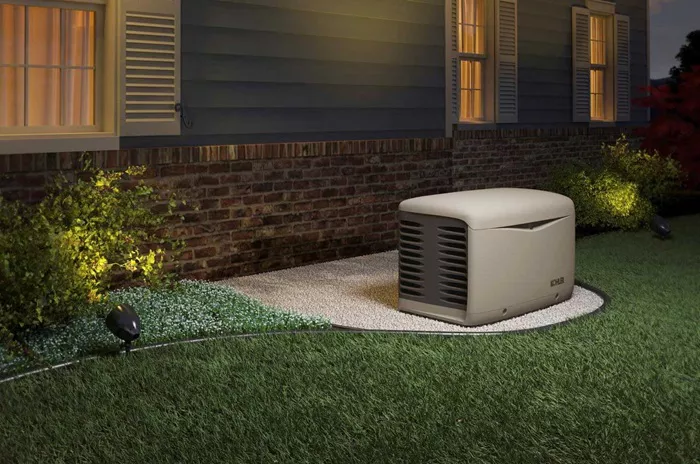In today’s world, where uninterrupted power supply is crucial for both comfort and safety, investing in a whole home generator is a smart decision. These units provide peace of mind by automatically restoring power during outages, ensuring that essential appliances and systems continue to operate seamlessly. However, selecting the right size generator is critical to ensure it meets your household’s needs without unnecessary overspending or underperformance.
Understanding Power Requirements
Before diving into generator sizes, it’s essential to understand your home’s power requirements. This involves assessing the wattage demands of key appliances and systems you want to power during an outage. By compiling a comprehensive list and calculating the total wattage, you can determine the minimum generator capacity needed.
Calculating Wattage Needs
To accurately calculate your wattage needs, consider the starting (surge) and running (continuous) wattage of each appliance. Appliances like refrigerators, air conditioners, and well pumps often require higher starting wattages compared to their running wattages. A detailed assessment ensures your generator can handle these peak demands without overload.
Generator Size Options
When it comes to whole home generators, they are typically categorized by their kilowatt (kW) output capacity. Understanding the different size options available helps in choosing the most suitable generator for your home.
Small to Medium Size Generators (7-22 kW)
Small to medium size generators are ideal for powering essential circuits in smaller homes or providing limited power to larger homes. They are compact, fuel-efficient, and often come with advanced features like quiet operation and automatic load management.
Medium to Large Size Generators (25-60 kW)
Medium to large size generators are designed to power larger homes or properties with higher electricity demands. These generators can typically support multiple high-wattage appliances simultaneously and offer robust performance during extended outages.
Commercial-Grade Generators (60+ kW)
For extensive power needs or commercial applications, such as large estates or businesses, commercial-grade generators provide ample power reserves. They are designed for continuous operation and can support complex electrical systems without compromise.
Factors Influencing Generator Size Selection
Several factors influence the selection of the right size whole home generator beyond just wattage capacity. Considering these factors ensures a tailored solution that meets your specific requirements.
Load Management Features
Modern generators often come with load management features that prioritize power distribution to critical circuits during outages. This capability maximizes efficiency and prevents overload by intelligently managing available power.
Fuel Type and Consumption
Generator fuel type (natural gas, propane, diesel) and consumption rates are crucial considerations. Natural gas generators, for example, offer continuous fuel supply but may require a larger capacity line. Propane generators are versatile but require storage capacity planning.
Installation Space and Noise Levels
The physical footprint and noise levels of generators vary significantly. Assessing installation space availability and considering noise ordinances ensures compliance and minimizes disruption to household activities.
Budget and Total Cost of Ownership
While generator size directly impacts upfront costs, considering long-term maintenance, fuel costs, and warranty coverage helps in evaluating total cost of ownership. Budgeting for installation and ongoing maintenance ensures financial preparedness.
see also: How To Use Whole Home Natural Gas Generator
Professional Installation and Maintenance
Installing a whole home generator is a task best handled by professionals. Certified electricians and generator technicians ensure proper sizing, safe installation, and compliance with local codes. Regular maintenance and servicing extend the lifespan and reliability of your investment.
Conclusion
Selecting the right size whole home generator involves a thorough assessment of your household’s power needs, considering factors like appliance wattage, generator size options, and operational requirements. By understanding these aspects and seeking professional guidance, you can confidently choose a generator that ensures uninterrupted power supply during outages, safeguarding your home and family.
- the ultimate guide to home generators: power your home, secure your peace of mind
- unlocking the power of general generators: a comprehensive guide
- the hidden costs: uncovering the downsides of diesel generators

